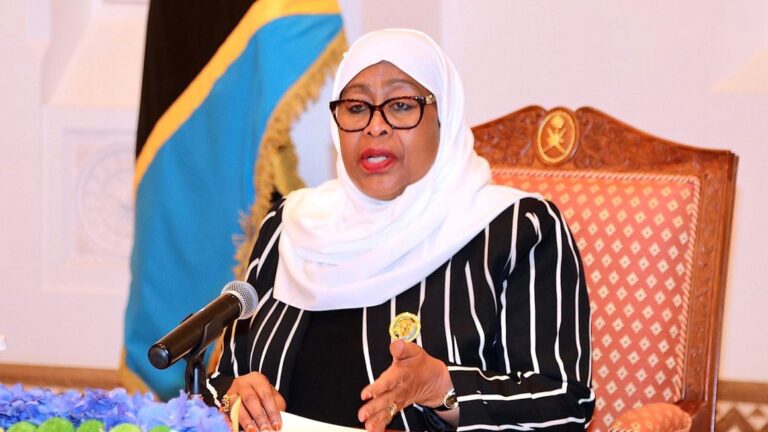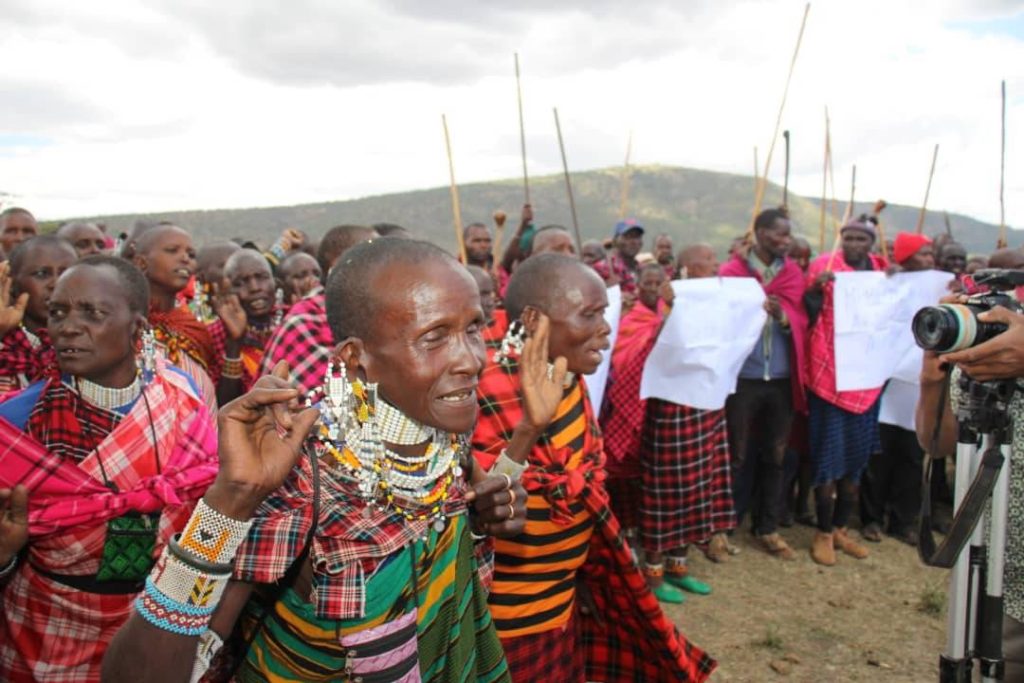For Tanzania to realise real and sustainable democracy, a new constitution is necessary.
President Samia Suluhu Hassan took over as the country’s first-ever women president two years ago, changing the Tanzanian political space. Since Suluhu Hassan has made several reforms, including lifting the ban on newspapers and a ban on opposition rallies imposed by her predecessor, John Magufuli. Tanzania’s opposition has welcomed President Samia Suluhu Hassan’s pledge to restore competitive politics and review the country’s constitution.
However, a growing number of MPs and opposition members and activists want her to go beyond and change the constitution.
There was little civic space and lots of clamping on the opposition parties under the late Magufuli. Opposition parties have expressed dissatisfaction with the country’s current constitution, claiming it is full of patches, and only caters to the ruling party’s interests.
Following these calls, on 6 May, Suluhu Hassan finally gave the go-ahead for political parties meeting to get the constitution-writing process under way. The recommendations of a government-backed task force on democratic reforms will guide the process. This task team was appointed by the president in 2022 to review the political situation in the country, among other recommendations, the task team proposed the revival of the constitution-writing process.
In September 2022 the task team concluded collecting public views. The team advised that the draft that was shelved in 2015, just before being presented for voting in a public referendum, would provide the best basis for the next steps.
According to Suluhu Hassan, the consultations for the constitution-making process should involve various other stakeholders and ordinary citizens from both Tanzania and Zanzibar apart from just the politicians.
The constitution writing process was initiated by Tanzania’s fourth president, Jakaya Kikwete, but stalled in 2014. The country’s current constitution was adopted in 1977 by senior members of the ruling party when the country was a one-party state.
Opposition parties and activists have noted that the great presidential power is a constitutional loophole. The Tanzanian constitution has proved to be weak in protecting itself.
With too broad level of presidential powers, the constitution gives the executive branch of government the upper hand over the two other branches of government: the judiciary and legislature.
Such powers – and their abuse – have led opposition parties and activists to call for constitutional reviews.
There were four reasons driving the agitation for constitutional change in Tanzania:
- Unfree and unfair elections. In Tanzania, unfree and unfair elections began after the constitution was amended in 1992 to allow for multi-party elections. Since then, there have been six general elections. Each has been marred by accusations of an unlevel playing field, rigging and violence. The 2020 general election was especially violent. Free and fair elections is crucial to realise because the composition of the electoral commission as provided for by the constitution is bound to be biased. The president, who is often the incumbent candidate and the chairperson of the ruling party, is responsible for appointing the executive director and commissioners of the commission. All election returning officers at the constituency level are also presidential appointees. The consequence is that electoral officials are likely to be loyal to their appointing authority rather than to the ideals of free and fair elections. Once the presidential vote has been announced, the constitution doesn’t allow for it to be challenged in court.
- unchecked presidential powers. Under the current constitution, the president of Tanzania has enormous power. He or she appoints senior officials in other branches of government and all heads of public institutions. This includes the chief justice, all other judges and the inspector general of police. The president also appoints the controller audit general, who audits government accounts. The president cannot be prosecuted as per Article 46 of the constitution. The president is protected during and after their tenure in office.
- Political impunity. Impunity in Tanzania plays out where one group of people can do what they like politically, while another group – in particular opposition politicians – faces excessive exposure to an unjust system.
Charges against opposition leaders, activists and business people are popular tools for keeping critics silent. Such charges, facilitated by undemocratic laws, were used during Magufuli’s regime. In the early days of Hassan’s administration, in July 2021, Freeman Mbowe, the leader of the opposition party Chadema, was arrested and charged with terrorism offences. Due to political pressure – and a failure to find evidence – the charges were dropped. After his release in March 2022, Hassan expressed her determination to boost the country’s democracy. She has also expressed her resentment of the unjust political system and called out corruption at the office of public prosecutions.
4. Political arrangement between Tanzania and Zanzibar. This is arguably the most contentious trigger for calls for constitutional reform. The political relationship between the island of Zanzibar and the mainland, Tanzania, has raised calls for Zanzibari autonomy. The government of the United Republic of Tanzania deals with union matters, as well as all mainland issues. The Revolutionary Government of Zanzibar deals with the matters of Zanzibar only.
Calls for constitutional change in Tanzania began in 2010. A constitutional review commission was set up in 2012, headed by former prime minister Joseph Warioba. The commission drafted a report, and a constitutional review assembly was set up to debate it.
The review assembly was dominated by members of the ruling party, Chama cha Mapinduzi. They altered the Warioba report and proposed a draft constitution similar to the existing one. A coalition of opposition parties boycotted the process and it stalled.
Maintaining the same constitution has been the ruling party’s strategy. The current constitution facilitates one-party dominance by entrenching the party’s and president’s power.
Further review was stopped by president John Pombe Magufuli, who came into power in 2015. Magufuli rejected any calls for constitutional reforms – and acted in a way that disregarded the existing law.The underlying call for constitutional reform seeks to uproot the one-party state system to allow for accountability and democratic progress in Tanzania. Under the current constitution, any pronouncements of change are cosmetic, with no sustainable effects.





